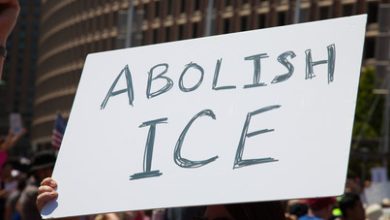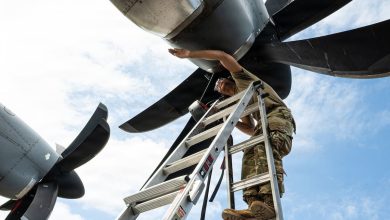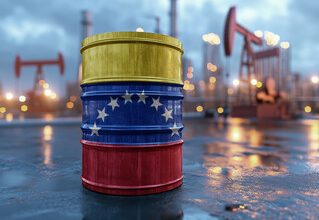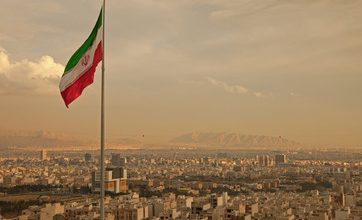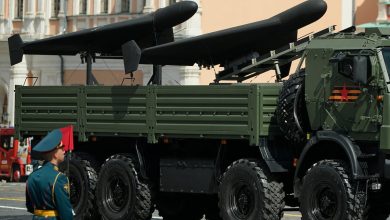Ukraine closes Havana embassy over Cuban fighter pipeline for Russia
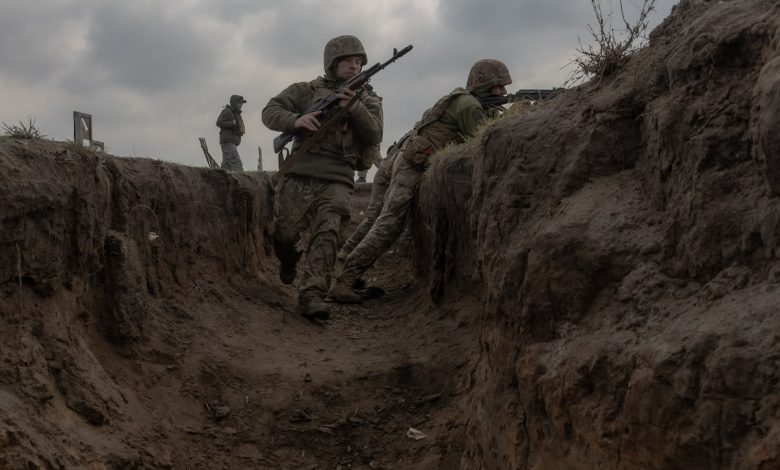
BERLIN — Ukraine has closed its embassy in Cuba and censured the government in Havana over allegations that the Caribbean dictatorship is complicit in sending troops to fight in Russia’s war against Ukraine.
The move comes just weeks after Russia and Cuba signed a military cooperation agreement and the U.S. released intelligence suggesting as many as 5,000 Cubans may be on the frontlines.
Ukrainian Foreign Minister Andrii Sybiha accused Cuba of being “complicit” in Russia’s war of aggression by allowing “thousands” of its citizens to travel to Russia to fight as mercenaries on the frontlines of the war in Ukraine. Cuba has also provided diplomatic backing to Russia and assisted Moscow in circumventing Western sanctions. Cuba’s president has previously publicly wished Russia “success” in its invasion of Ukraine.
Wednesday’s announcement to close the embassy and downgrade diplomatic ties came alongside a first-ever “no” vote by Ukraine on an annual United Nations resolution calling for the lifting of the draconian U.S. embargo on Cuba.
“Our vote is not against the Cuban people — we respect their right to live in prosperity. It is against the inaction of Cuba’s authorities in response to massive recruitment of Cuban citizens to the Russian occupation army,” Sybiha said.
Ukraine’s ambassador to the UN, Andrii Melnyk, called Cuban nationals “the largest group of foreign mercenaries in the Russian army” ahead of Wednesday’s vote.
The United States estimates that as many as 5,000 Cubans may be fighting in Ukraine, according to an unclassified cable sent to American diplomatic missions on Oct. 2 and first reported by Reuters. According to the document, “after North Korea, Cuba is the largest contributor of foreign troops to Russia’s aggression.”
Ukrainian intelligence has reported 39 confirmed Cubans killed during the war in Ukraine, though estimates of actual casualties are in the low hundreds. The military intelligence agency HUR has confirmed at least 1,076 Cuban fighters on the frontlines.
In response, the Cuban foreign ministry on Oct. 11 denied allegations of being involved in the Russo-Ukrainian war, calling the reports “false accusations” and saying that “it is irrefutable that none of them have the encouragement, commitment, or consent of the Cuban state for their actions.”
It remains unclear how systematic the recruitment of Cubans is. Russian investigative outlet Sistema revealed that two Russian women – a travel agent and a hairdresser – ran a recruitment scheme using false pretenses. They reportedly promised construction work with lucrative pay – construction gigs providing $2,000 monthly, or 100 times the average Cuban salary – only for Cubans to have their passports confiscated upon arriving in Russia and being pressured into signing a contract with the country’s military. Russian authorities later arrested both women.
In September 2023, Cuban authorities announced they had arrested 17 people involved in a human trafficking network recruiting Cubans to fight for Russia. There have been no subsequent updates.
It was not immediately clear what role the Cuban government played in the scheme, although the totalitarian nature of the country, which maintains strict travel controls on its citizens, suggests at least a certain degree of complicity. Melnyk, Ukraine’s ambassador to the UN, said the recruitment was taking place “openly with the silent consent of Havana’s authorities.”
Cuba and Russia have long maintained warm relations, rooted in the close ties the two countries forged during the Cold War. The Cuban government also has a track record of sending its citizens to fight in foreign wars aligned with the leadership’s objectives; during the Cold War, these were primarily anti-colonial struggles in African nations, such as Angola.
Additionally, due to the U.S. embargo, Cuba is heavily reliant on a few “friendly” nations to support its struggling economy. Under the military cooperation agreement ratified on Oct. 8, Russia will provide the energy-starved island nation with 1.64 million tons of petroleum annually.
Linus Höller is Defense News’ Europe correspondent and OSINT investigator. He reports on the arms deals, sanctions, and geopolitics shaping Europe and the world. He holds a master’s degrees in WMD nonproliferation, terrorism studies, and international relations, and works in four languages: English, German, Russian, and Spanish.



